Arethusa bulbosa, dragon's mouth, is a beautiful native orchid that blooms in the late spring to early summer and is rare in New Jersey
Flowers
Arethusa bulbosa, dragon's mouth, has other common names including bog pink, calopogon, grass pink, wild pink and swamp pink. Some of these other common names we use for other orchids.
These beautiful magenta-pink flowers are up to 1.5 inches long. The 3 sepals are upright. The two of the 3 petals hover over the reproductive structure, the column, and the 3rd petal, the lip, is below. The magenta and white lip is highly ornate with wavy edges, magenta spots and fleshy white and yellowish fleshy bristles along the center.
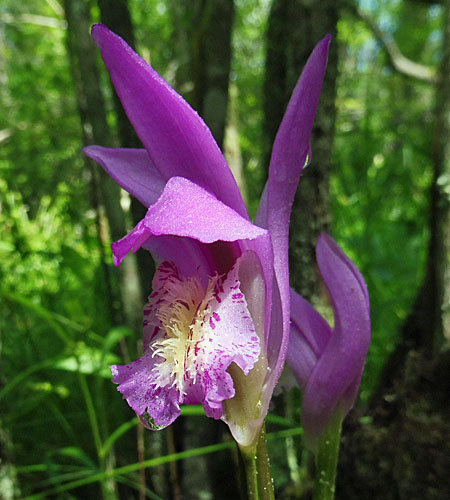
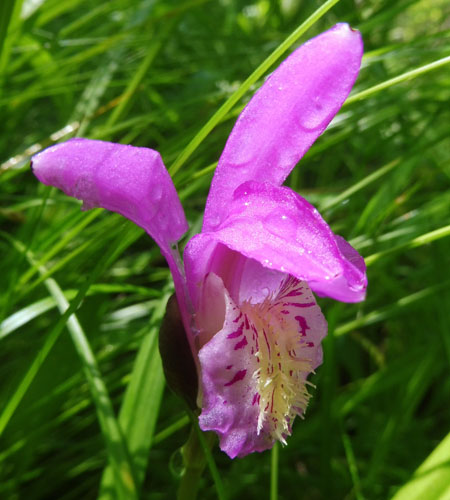
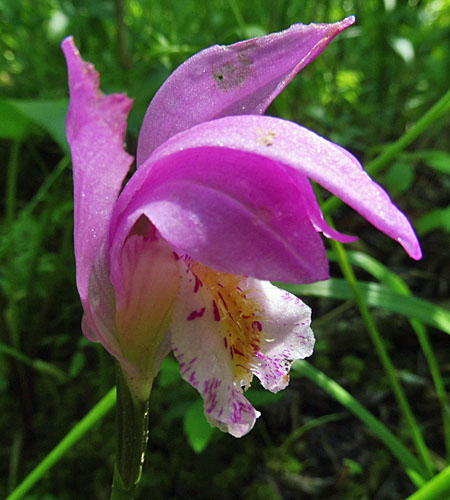
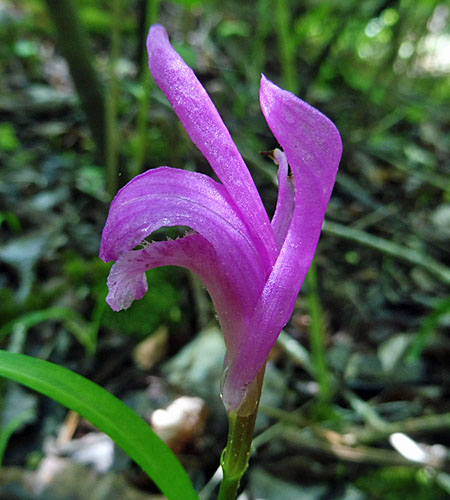
A look into the dragon's mouth: Here are a two photos, where the column ( reproductive structure - fusion of stamen (male) and pistil (female) ) can be seen. At the apex of the column is the anther and stigma. Also seen is some tissue that is attached to the column and forms a canopy over the entire column. In the second photo, the yellow structure is the pollinia.
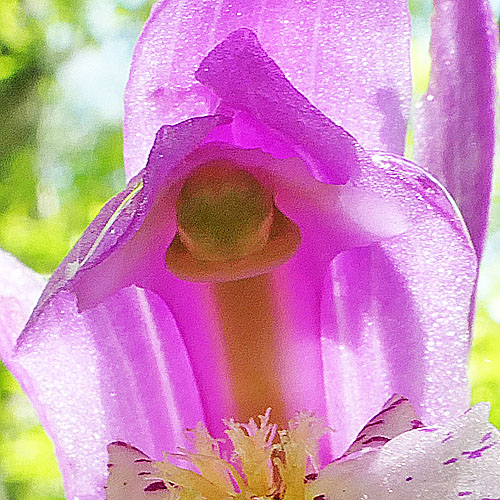
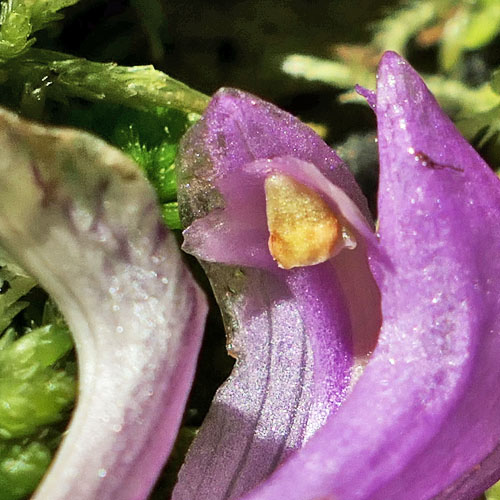
Pollination: The plant is self-compatible but is designed for outcrossing too. The flowers offer little or no nectar reward to their pollinators. Their pollinators are bees that are apparently attracted to the large, colorful flowers, and ultraviolet absorbing, brushes on the lips. So the bees are deceived into pollinating the plant. However, the bees quickly learn so pollination is dependent on an adequate supply of inexperienced bees emerging throughout the blooming season.
Leaves and Plant
The usually single flower forms at the top of a single stem about 6 to 10 inches tall. The plant grows from a small, round corm that is frequently embedded in sphagnum moss.
The plant is about 12 inches tall.

Base of stem, narrow leaf & stem

An Arethusa bulbosa seed is tiny and it take several years of development before it can photosynthesize. In the meantime it needs carbohydrates to develop and the reserves stored in the seed is not sufficient. So it must establish mycorrhizal associations to obtain food. These mycorrhizal associations enable the plant to mature and develop photosynthesis. However, it appears that the plant is unable to sustain itself by just photosynthesis and needs to have ongoing mycorrhizal associations.
Habitat
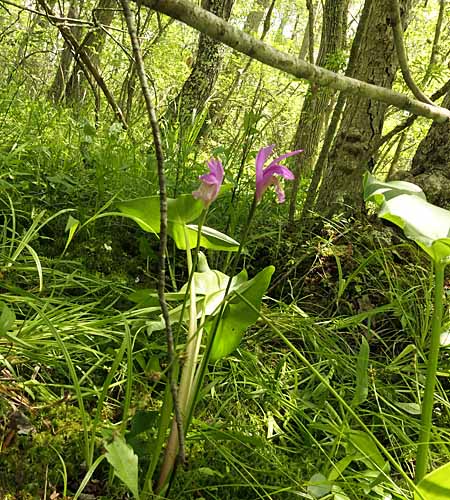 Habitat: Sphagnum bogs, coniferous swamps, calcareous woods to open fens, and moist, acid, sandy meadows
Habitat: Sphagnum bogs, coniferous swamps, calcareous woods to open fens, and moist, acid, sandy meadows
Text by Millie Ling and all photos by Hubert & Millie Ling: 5/27/2021, Pine Barrens, NJ. Thanks to Mike Hogan for locating the plants.
Additional information
Additional information / references:
In NJ List of Endangered Plant Species and Plant Species of Concern:
https://www.state.nj.us/dep/parksandforests/natural/heritage/njplantlist.pdf
Arethusa bulbosa is listed as S2(State endangered) and G5(Globally secure)
The USDA website shows its distribution in the US and other information,
The Arethusa distribution shown includes most of NJ and not limited to the pinebarrens.
https://plants.sc.egov.usda.gov/home/plantProfile?symbol=ARBU
North American Orchid Conservation Center:
Pollination
https://goorchids.northamericanorchidcenter.org/species/arethusa/bulbosa/
Colin's Virtual Herbarium has some great close ups of the flower column and entire plant:
main page:
http://www.colinherb.com/Orchidaceae/Arethusa/Bulbosa/Arethusa_bulbosa.htm
column:
http://www.colinherb.com/Orchidaceae/Arethusa/Bulbosa/Arethusa_bulbosa_1741_200.htm
anther cap & stigma:
http://www.colinherb.com/Orchidaceae/Arethusa/Bulbosa/Arethusa_bulbosa_1741_211.htm
anther pollen sac & stigma:
http://www.colinherb.com/Orchidaceae/Arethusa/Bulbosa/Arethusa_bulbosa_1741_224.htm
Plants of Southern New Jersey:
https://www.cumauriceriver.org/botany/Arethusa.html
Minnesota Wildflowers has good descriptions of the plant parts:
https://www.minnesotawildflowers.info/flower/dragons-mouth
Arethusa bulbosa: Life Cycle, Propagation and Production, pg 41 of Conference Proceedings of North American Native Terrestrial Orchids 1996
Click here